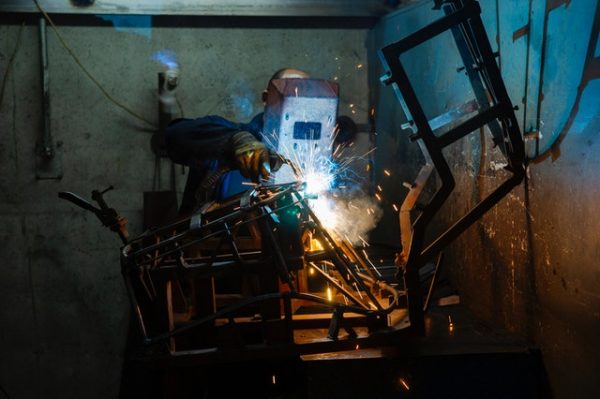What is logistics? How can we get as close as possible to that concept? How can we help shape it and grasp what it entails? In order to achieve this, we have tried to approach it from different points of view, in order to create a complete puzzle. Let’s use some academic definitions, short quotes that underline key ideas about logistics, where the term came from, and what the future holds to find out what logistics is.
Definitions of what is logistics
“Logistics is the process of strategically managing the acquisition, movement, and storage of materials, parts, and finished inventory (and the corresponding information flow) through the organization and its marketing channels so that current and future profitability the future are maximized through cost-efficient order processing.” This is how Martin Christopher, author of the book Logistics and Supply Chain Management, defines it. In this definition, he highlights a very global vision through various processes, departments and objectives.
Another very common definition is the one that focuses on what is known as seven Rs, the seven “rights”, in reference to the seven things that must be done “correctly”. “Logistics is about getting the right product, to the right customer, in the right quantity, in the right condition, in the right place, at the right time, and at the right cost,” according to the formulation of John J. Coyle, professor and author of books on logistics.
Logistics vs Supply Chain
When talking about what logistics is, another issue that always comes to the fore is what is the difference between logistics and supply chain. To do this, we turn to the definition of Michael Hugos, a supply chain specialist and his analysis who has worked for companies such as Microsoft and Starbucks:
“Logistics usually refers to activities that occur within the confines of a single organization, while supply chain refers to the network of companies that work together and coordinate their actions to bring a product to market. Traditional logistics also focuses its attention on activities such as purchasing, distribution, maintenance, and inventory management. The supply chain includes all traditional logistics and includes activities such as marketing, new product development, finance, and customer service.
Quotes about what is logistics
The definitions that we have just seen give us a very academic and complete perspective of the functions and tasks of logistics. However, now we are going to resort to quotes that, although sometimes they do not deal directly with logistics, do shed light on some fundamental aspects, such as the use of data or continuous improvement.
Continuous improvement
“If you think that standardization is the best we know today, but that it has to be improved tomorrow, you are on the right track”, Henry Ford, founder of Ford.
The complexity of logistics
“Supply chain stuff is really complicated,” Elon Musk, CEO of Tesla and SpaceX.
The need for the data
“Without data you are just another person with an opinion”, W. Edwards Deming.
daily work
“Anyone can have the heart of a champion when it’s game day. But it is the heart that you have for weeks, months and years of preparation that really makes the difference.” John Raymond.
The omnipresence of logistics
“The supply chain is like nature, it is all around us”, Dave Waters.
The vital role of logistics
“Leaders win through logistics. Vision? Sure. Strategy? Yes. But when you go to war you need toilet paper in the bathroom and bullets in the right place at the right time. In other words, you must win through superior logistics”, Tom Peters, business management specialist.
In the year 2020 there will be 5,000 million devices connected to the Internet.
Past, present and future of logistics
Origin of the word
To complete our portrait of what logistics is, we are also going to delve into the origin of the word, which goes back many centuries before terms like Just in Time or Six Sigma were current in our logistics vocabulary.
If we follow his trail we will reach ancient Greece and the Roman Empire. In those civilizations the ‘Logistikas’ were the military officers in charge of supplying the army. In this way, the importance of the management and distribution of supplies and goods was already recognized. That is why it is not surprising that Rome has been known through the years for its achievements in matters related to logistics: construction of roads that connected the empire, of canals, aqueducts, etc.
The future of logistics
So far we have answered what logistics is. However, it may be even more important to know what logistics will be in the future. A multitude of advances are changing logistics to points that recently seemed unimaginable; especially in everything related to digitization.
Along with the birth of Industry 4.0 -a concept that arises from the integration between the physical and the digital in the business world- Logistics 4.0 also appears. In Spain, the Ministry of Industry itself mentions logistics as a fundamental actor for this new industrial revolution.
The vast majority of advances and trends in logistics belong to this field, whose possibilities are almost endless: monitoring and traceability in real time, use of more precise and sophisticated sensors, integration of the Internet of Things -traceability, demand prediction, purchase orders-, use of Big Data (better knowledge of our processes, anticipation of the needs of our customers, etc.). To see the potential of this fusion between the physical and digital world, it is enough to remember that some forecasts estimate that by 2020 there will be 5,000 million devices connected to the Internet.
Conclusions of what is logistics
Once the table is complete, it is time to compile what has been learned about what logistics is. We have seen that logistics is a broad discipline and that it affects different departments in their ways of working and in their future results. Which is also very old, but at the same time it is assimilating the most advanced advances in technology. That there are several ways to define it, more technical and academic or more brilliant and concise. But, ultimately, logistics will continue to be an essential part of our business world and our day to day.


